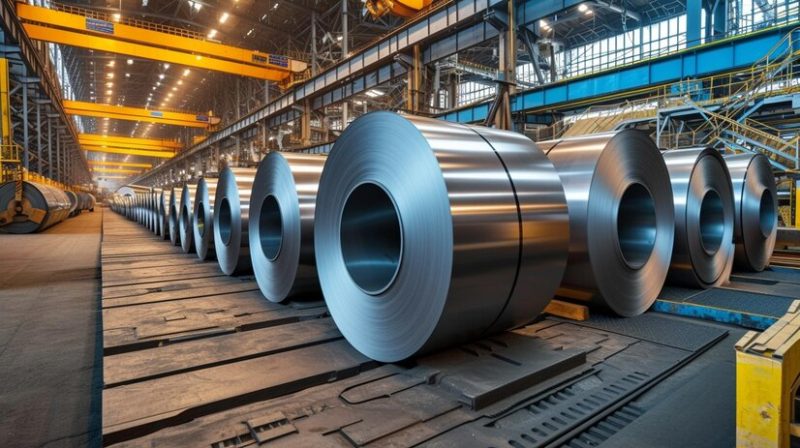 India’s steel industry is on track for substantial growth, with plans to add around 23 million tonnes (MT) of crude steel capacity between FY24 and FY27, according to a recent Nomura report. This expansion mirrors the industry’s compounded annual growth rate (CAGR) of 4.8%, consistent with its performance from FY15 to FY24. Despite this large increase, industry experts believe the sector is heading into a favorable phase. Major players such as JSW Steel, JSPL, Tata Steel, and ArcelorMittal & Nippon Steel are expected to contribute approximately 87% of the ongoing capacity additions.
India’s steel industry is on track for substantial growth, with plans to add around 23 million tonnes (MT) of crude steel capacity between FY24 and FY27, according to a recent Nomura report. This expansion mirrors the industry’s compounded annual growth rate (CAGR) of 4.8%, consistent with its performance from FY15 to FY24. Despite this large increase, industry experts believe the sector is heading into a favorable phase. Major players such as JSW Steel, JSPL, Tata Steel, and ArcelorMittal & Nippon Steel are expected to contribute approximately 87% of the ongoing capacity additions.
JSW Steel aims to increase its capacity by 7 MT by FY28, reflecting a 5% CAGR over FY 24-28, while JSPL plans to expand by 6.3 MT by FY27, marking an 18% CAGR over FY 24-27. Though a more conservative 6% CAGR in steel demand is anticipated through FY27—down from the 7% average over the past five years—demand is still expected to outpace capacity growth. This could help balance the supply-demand equation within the domestic market, potentially reducing the sector’s dependence on exports for growth.
Analysts suggest that Indian steel companies, already positioned at the lower end of the global cost curve due to competitive labor and iron ore costs, are well-placed in the international metals sector. Future expansions are predicted to stem primarily from brownfield projects, with strong domestic demand continuing to play a key role. Between 2019 and 2023, India’s steel production grew at an impressive 6% CAGR, far outpacing China’s 1% growth and the global 1% decline. As a result, Indian steel manufacturers are among the most competitive globally, with considerable growth potential in the coming years.









